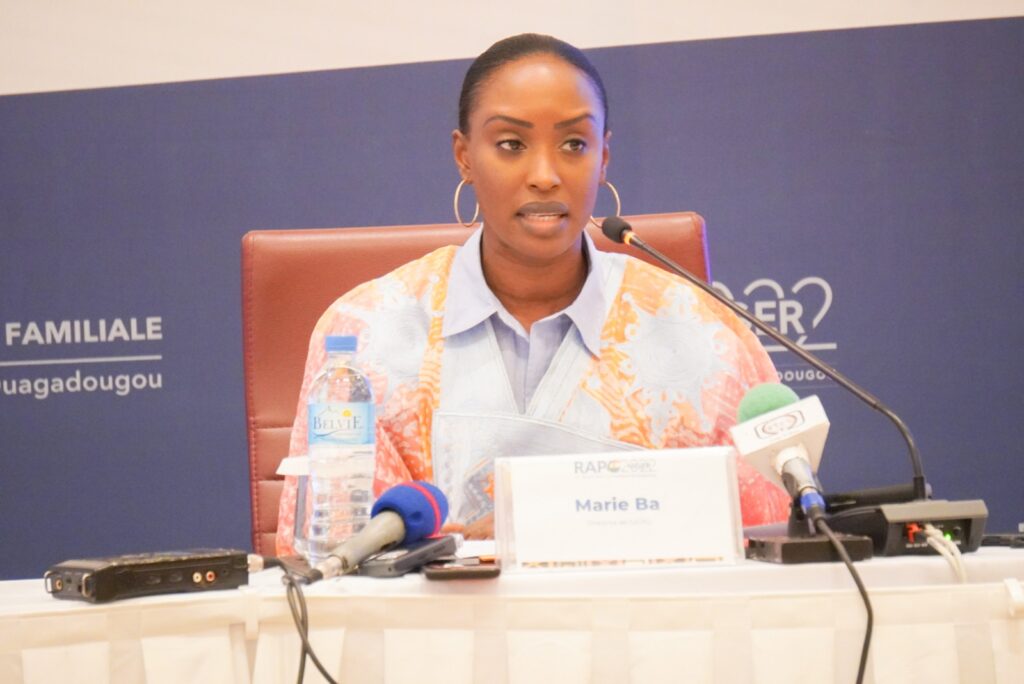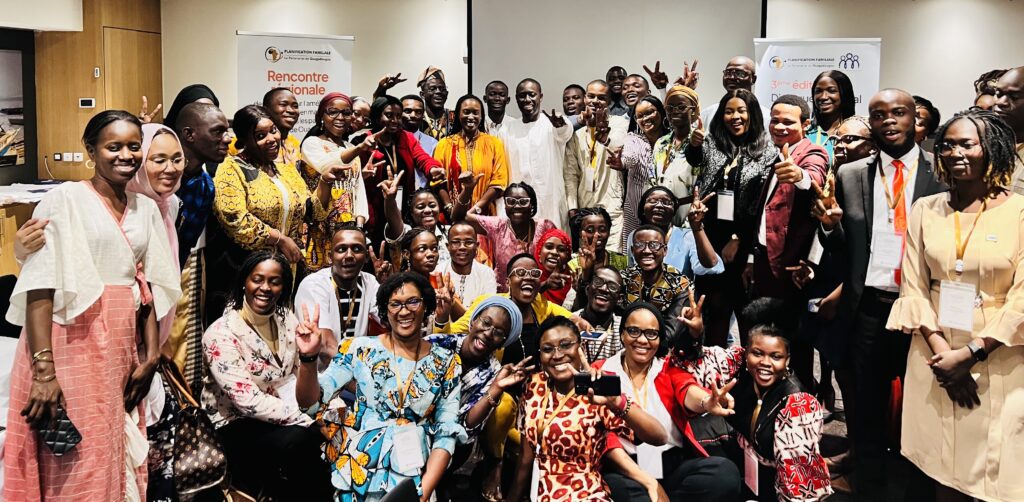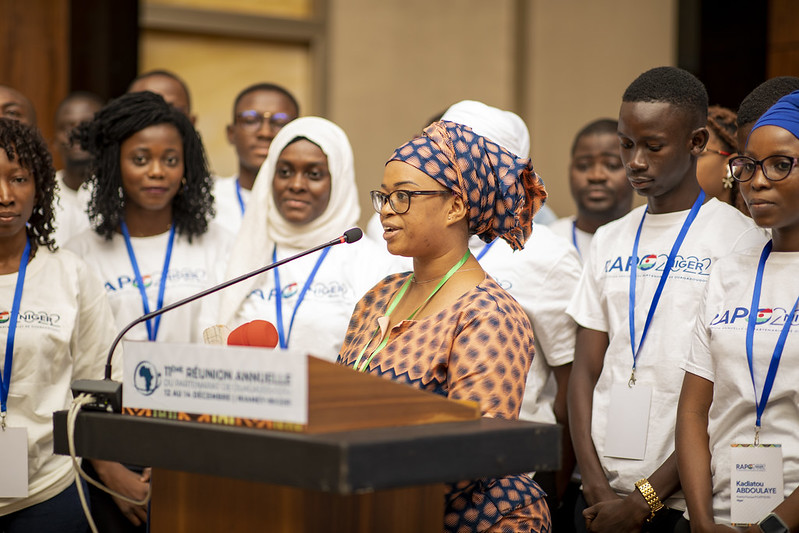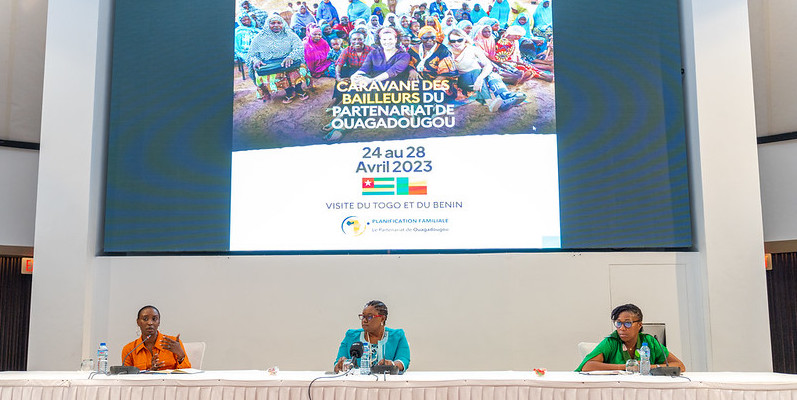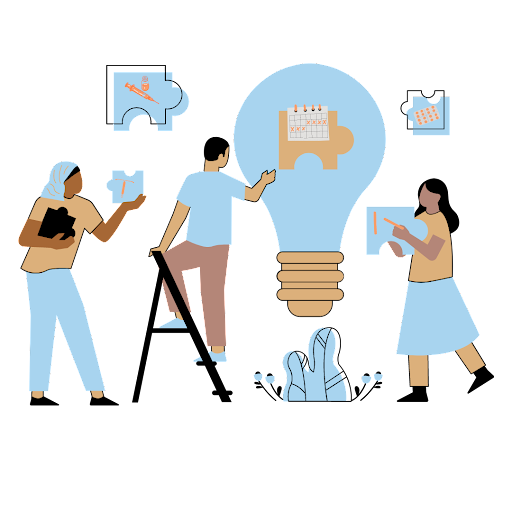Aissatou: What are the levers on which the OPCU intends to rely to promote the financing of youth organizations engaged in FP/RH?
Marie: As I mentioned, we want to act heavily on their employability. What we realized when we were doing the OP youth strategy was that many young people were in the sub-region, working with the partners, but it stopped at a certain stage. That is to say, they went to conferences, they learned as much as possible, sometimes there was training, but then, when they had to return to work life, we lose them because they need an income, and it is not possible to keep them as volunteers.
A big shift we have made at the OPCU level is to insist that their work should be paid, based on their skills and knowledge. We have started recruiting youth leads who are paid with health insurance and all the benefits that go with it. But we also aim to encourage the partners as much as possible to do the same. As I said, we cannot be in a region where we want or claim to support young people, that we give them training but then, we do not consider them capable of integrating into our institutions and organizations. Another point, one of the barriers we have heard a lot is the problem of financing youth associations and organizations. This is one of the reasons why they are unable to obtain direct funding. It sometimes goes through civil society, but very often we have heard, they just don’t connect.
| “Because we treat them like children, they are not able to move as freely as they would like. We’ve discussed whether there could be trust agencies for these youth organizations who may not necessarily be involved in family planning. That’s a lesson learned at the OPCU level. When your host is in the same field as you, there is immediately this competition that is created.” —Marie Ba |
This is a way to remove this spirit of competition that is sometimes created and to be able to have them trust agencies that are only there to ensure that the funds are used wisely, to be able to have audits and that donors and implementing partners can have trust. These are conversations that we started but we did not evolve as much as we would like. At the same time, there should also be institutional capacity building for youth organizations, for example, in resource mobilization. However, there is no point in learning how to mobilize resources if you do not also know how to apply, spend, and integrate them.
We’ve often heard their heartfelt cry: “Trust us, trust us”. As I tell them, donors and the like are all beholden to their taxpayers, and we can’t take any chances. So there has to be some work done. Going beyond “trust us”. At some point, you have to say to them, okay, but can you sit down and form an organization? What are you missing to have a legal status? What are you missing to…, etc.?
And then there’s all the work they’ll have to do, because it’s going to be complicated. Some partners may be able to do it, but as I say, if we want to take our destiny into our own hands, we have to come to the table with an idea, to express what our needs are. To be able to register as a legal entity, to be able to have a financial manager, an accountant who will do the follow-up, how to carry out an audit and all these questions, to understand that these are their needs, to see who could finance this institutional strengthening and then in the first few years, let’s say, with a fiduciary agency that would help them manage their funds. But then there are the programs behind them, the operations. It’s a really big job, and maybe sometimes we don’t realize it. And then, to be able to finance all that. For me, it also goes to employability. I think that direct funding of youth organizations is a real challenge that the OPCU and its partners would like to better coordinate and collaborate on.



